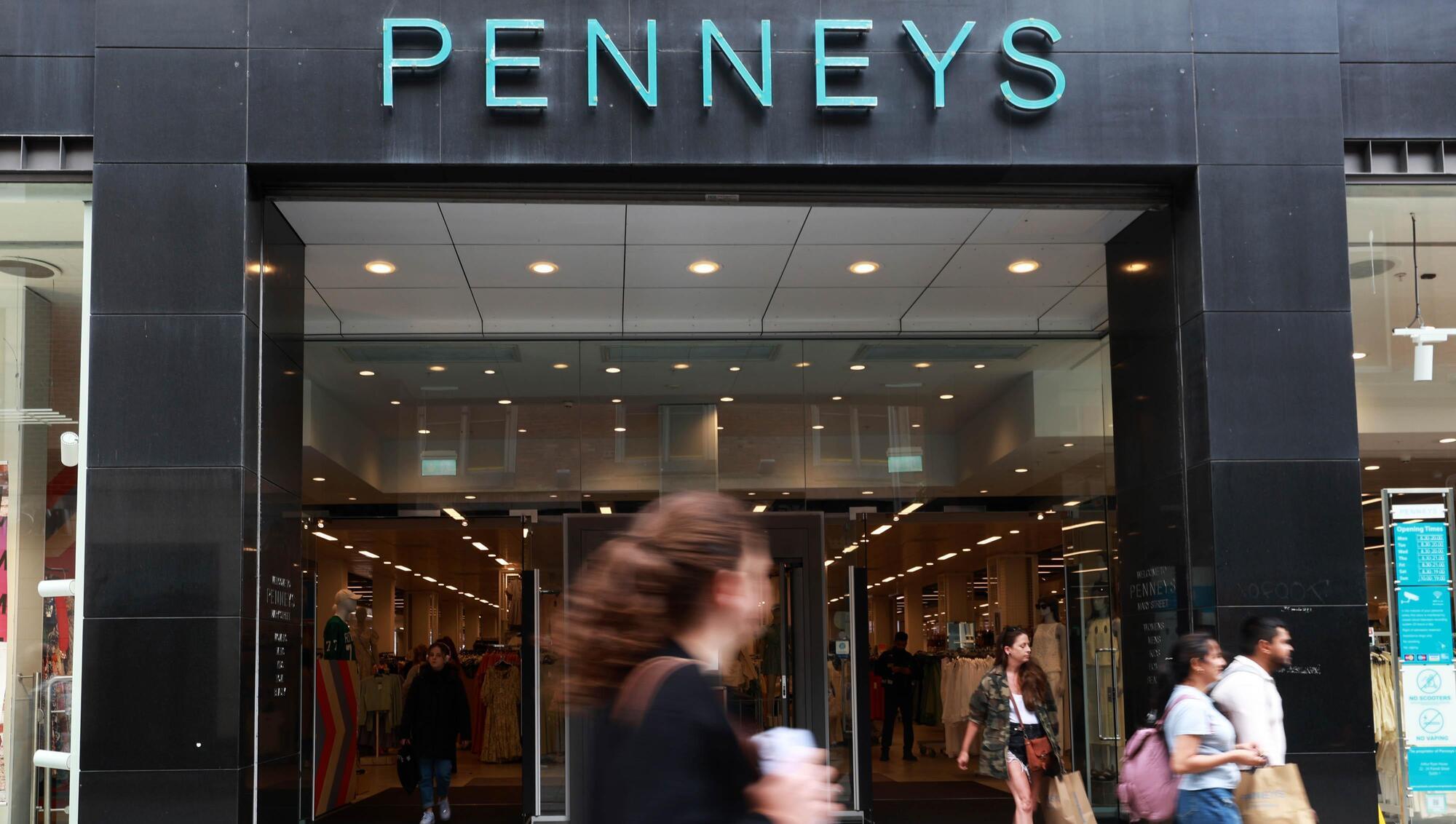Business
Penneys Reports Flat Revenue Amid Strong Profit Growth in 2024

Penneys, the Irish retailer operating under Primark Ltd, reported a marginal decline in revenue for its Irish stores despite a notable increase in pre-tax profits. For the year ending on September 14, 2024, the company’s pre-tax profits surged to more than €881.5 million, up from €416.63 million in the previous year. However, revenues from the Irish store network dipped slightly from €744.5 million to €741.7 million due to unfavorable weather conditions.
The results, detailed in newly released accounts, indicate that the average daily pre-tax profit exceeded €2 million last year. The directors of Primark noted that trading performance in Ireland remained flat, particularly in the second half of the year, which was adversely affected by poor weather. Despite these challenges, the opening of a new store in Bray during the summer helped mitigate some of the negative impacts.
Investment plans for the future are robust. A Primark spokesperson confirmed the company is committed to a multi-year investment programme of €250 million in Ireland, which aims to enhance existing stores and create new job opportunities. Recent refurbishments included the Penneys location on O’Connell Street in Dublin and a new store in Limerick, with the latter reopening last week following an investment of €5 million.
The investment programme is expected to generate an additional 1,000 jobs and expand retail space in Ireland by approximately 20%. Furthermore, Primark plans to construct a state-of-the-art distribution facility in Newbridge, County Kildare, representing an investment of €75 million set to commence within the next year. Directors emphasized that these initiatives underscore the company’s long-term commitment to local communities throughout Ireland.
Overall, Primark’s revenues increased by 5% year-on-year, rising from €3.91 billion to €4.1 billion. This total includes €2.1 billion from intercompany supplies of inventory and €1.25 billion from the Primark Way franchise, which operates internationally based on Primark’s intellectual property and expertise.
The spokesperson highlighted a positive performance for the year, attributing the growth in turnover and profit to strong trading across key European and US markets, as well as consistent performance from Irish stores. Primark’s strategic expansions included entering Hungary and opening its 450th store in Orlando, Florida.
Financial disclosures reveal that Primark paid out dividends totaling €809 million and recorded a post-tax profit of €771 million, after a corporation tax charge of €109.9 million. The company has also experienced a slight decrease in employment, with numbers falling from 7,064 to 7,054, consisting of 5,033 retail assistants, 595 retail managers, and 1,426 central staff. Staff costs rose from €300.19 million to €319.03 million.
At the end of the accounting period, Primark Ltd’s accumulated profits stood at €1.6 billion. The company initially opened its first store in Dublin in 1969 under the name Penneys and is targeting a total of 530 stores globally by the end of 2026. The profit figures also account for non-cash depreciation costs of €86.53 million and non-cash amortisation costs of €45.35 million.
-

 Top Stories2 months ago
Top Stories2 months agoTributes Surge for 9-Year-Old Leon Briody After Cancer Battle
-

 Entertainment3 months ago
Entertainment3 months agoAimee Osbourne Joins Family for Emotional Tribute to Ozzy
-

 Politics3 months ago
Politics3 months agoDanny Healy-Rae Considers Complaint After Altercation with Garda
-

 Top Stories3 months ago
Top Stories3 months agoIreland Enjoys Summer Heat as Hurricane Erin Approaches Atlantic
-

 World4 months ago
World4 months agoHawaii Commemorates 80 Years Since Hiroshima Bombing with Ceremony
-

 Top Stories2 months ago
Top Stories2 months agoNewcastle West Woman Patricia Foley Found Safe After Urgent Search
-

 Top Stories4 months ago
Top Stories4 months agoFianna Fáil TDs Urgently Consider Maire Geoghegan-Quinn for Presidency
-

 World4 months ago
World4 months agoGaza Aid Distribution Tragedy: 20 Killed Amid Ongoing Violence
-

 World4 months ago
World4 months agoCouple Convicted of Murdering Two-Year-Old Grandson in Wales
-

 World4 months ago
World4 months agoAristocrat Constance Marten and Partner Convicted of Infant Murder
-

 Top Stories3 months ago
Top Stories3 months agoClimbing Errigal: A Must-Do Summer Adventure in Donegal
-

 Top Stories3 months ago
Top Stories3 months agoHike Donegal’s Errigal Mountain NOW for Unforgettable Summer Views









